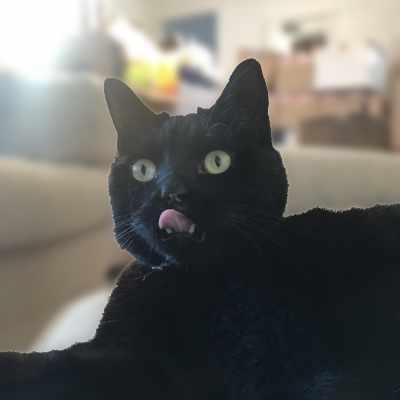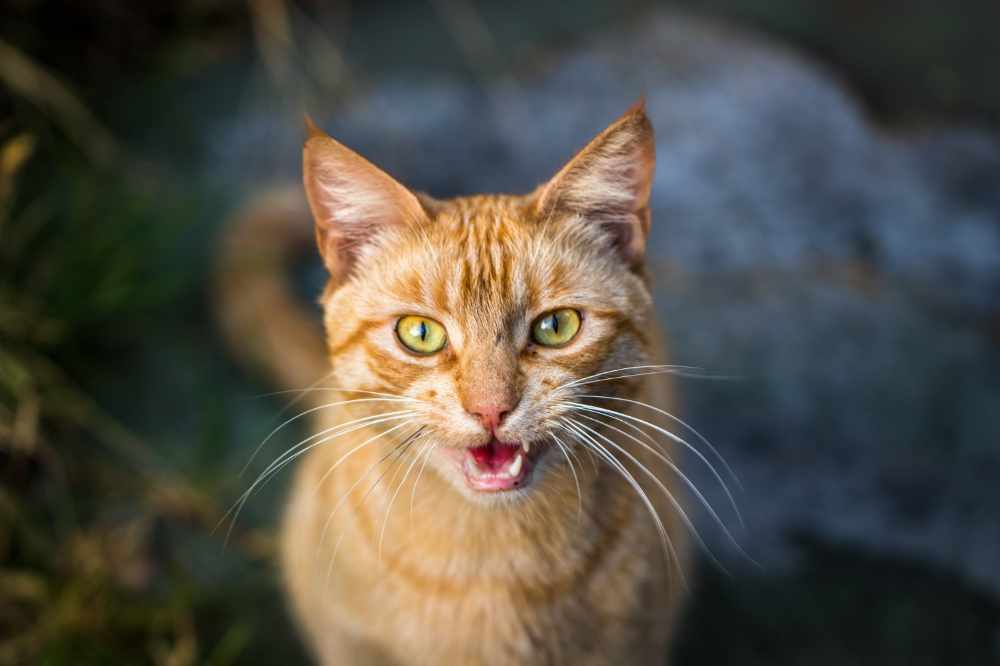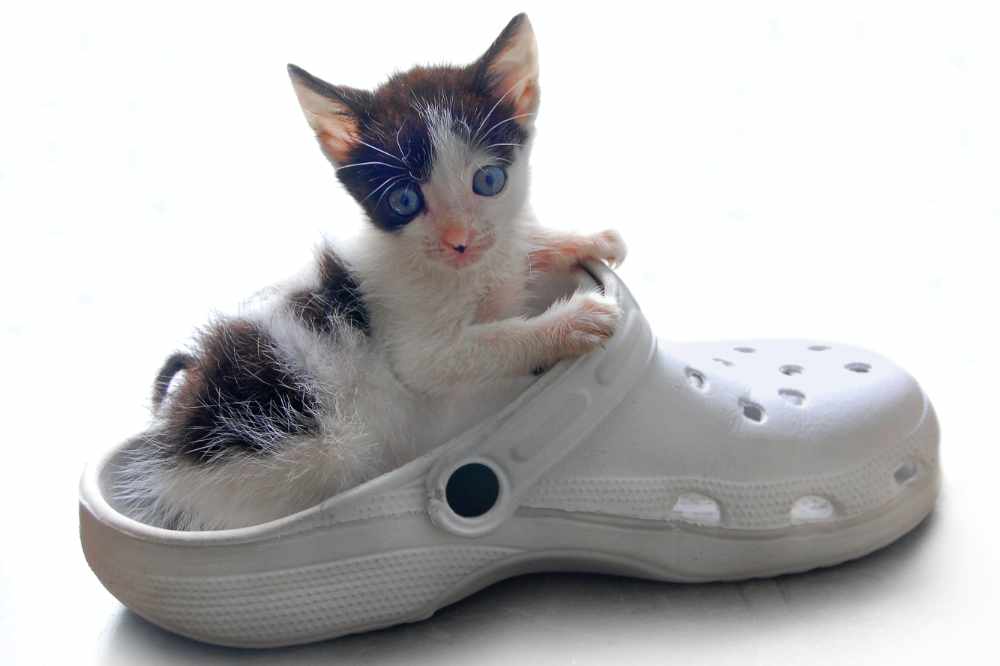Does your cat produce poops that clear a room? Does the sound of that litter being pushed around send everyone running for the hills? Are you embarrassed to have friends around when it reaches poop o’clock?
If these sound familiar then you have a cat poo problem. A very stinky turd is enough to put anyone off going near the litter box and it can leave your eyes a bit watery and your stomach a little queasy.
If you’re fed up with dealing with a smelly litter box then you may be asking questions to try and get to the bottom of the problem. There are some common reasons why your cat has extra smelly poop and luckily, there are ways to help mitigate the damage.
Wet cat food does not necessarily make cat poop smell worse compared to dry food. Wet food helps keep your cat hydrated but it shouldn’t make their poop smell worse than a dry equivalent if it’s made with high-quality ingredients. If wet food is producing very stinky cat poo then chances are, it’s simply poor-quality food.
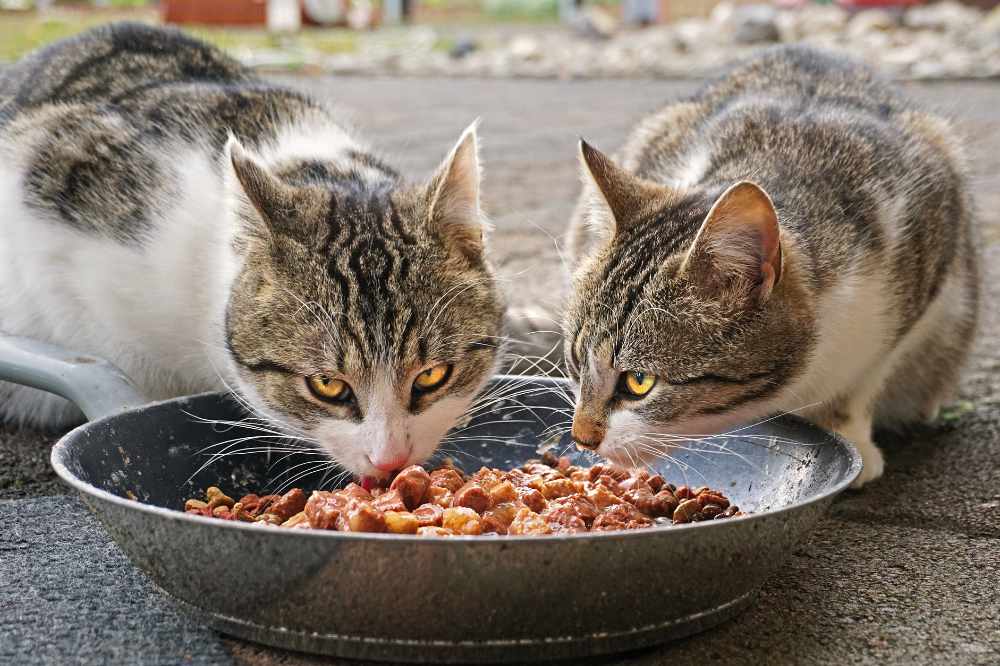
Why Does Cat Poop Smell Bad?
Things that cause cat poop to smell are ultimately why all poo smells terrible. Poop is a mix of undigested foodstuffs, dead cells, bacteria, and bile. The partial fermentation and decomposition that happens in the gut act to create this lovely pile of fertiliser that no matter what, is always a bit stinky.
Cats are obligate carnivores and this means that they need to eat a diet of animal flesh in order to survive. A diet composed of meat is high in sulphur and this can cause smelly gas as well as smelly poops.
It’s not at all unusual for cat poop to smell less than ideal but a little secret that not many people know is that cat poo doesn’t HAVE to smell. Some cats pass fairly odour-less faeces and it’s often to do with their diet as well as overall health.
A healthy cat on a suitable diet can have non-offensive toileting habits. You can tell a lot about your feline friend when you empty the litter tray and their poop can hold clues as to how healthy they are.
The Poop Holds Clues
Colour
Cat poop should be light to dark brown in colour. This can vary depending on the individual but should stay pretty consistent as long as your cat is on the same diet. You may notice fur in the poop from time to time and this is normal as cats often swallow bits of their coat whilst grooming themselves. A yellowish colour to their poop often indicates a digestive issue or even a problem with the liver or gallbladder. Any red tinges could be blood and you should always take your cat to the vet to get this checked out.
Consistency
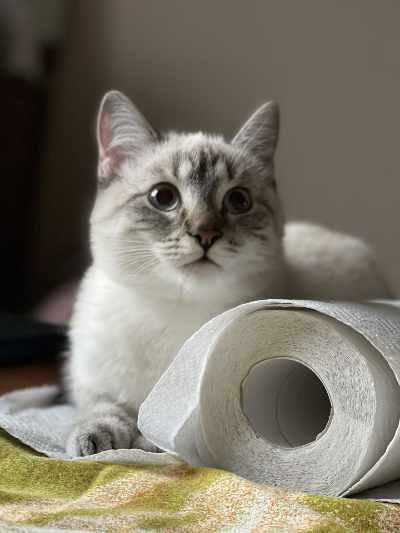
Cat poo should be pretty firm in consistency and hold together after it has passed. It should not be completely hard and dry as this indicates constipation. It’s ok for the poop to have a wet/glistening appearance but it shouldn’t be loose, liquid, or very soft. A good indicator of a healthy cat poo is you should be able to scoop it up with ease without leaving any traces behind.
Frequency
It’s quite normal for most cats to poop once or twice a day. Some cats may need to go more frequently than this. If you notice any major changes in the frequency that your cat visits their litterbox then this can indicate that something is not right. It’s important to make sure they’re not straining or struggling to pass faeces and if you are worried at all, call your vet straight away.
Nasty Surprises
Alongside their usual poop, cats can occasionally leave you with some nasty surprises in their litter tray. Little white specks in the poo can indicate a parasitic infection and sometimes you will even see little worms wriggling around in the tray. It’s always worth having a discussion with your vet so they can identify which type of worms your cat is passing and can recommend the best treatment to get rid of them.
Wet vs Dry Food
It can be really difficult to weigh up wet vs dry cat food and whether one is a better choice than the other because cat food can vary hugely across different brands. If we’re comparing wet vs dry food of the same brand and flavour then the real difference between the two is water content.
Wet food contains at least 65% moisture whereas dry food is less than 20%. More moisture makes the food more palatable so your cat may enjoy it more but it also adds volume so you will need to feed a larger amount compared to dry kibble. Dry food is more concentrated so smaller portions are sufficient and it keeps longer once opened.
Dry food is good for your cat’s teeth as crunching the kibbles helps keep their teeth clean. Wet food helps keep your cat hydrated which can prevent other health issues. Basically, there are benefits to both wet and dry food and the one you choose depends on your cat’s needs.
As for whether wet vs dry food causes your cat’s poop to smell worse or better the jury is still out. Some people report that one option over the other causes a smelly litter box but this seems to vary given food type as well as different cats.
In the end, the best way to mitigate the stench from your kitty’s rear end is to ensure that whatever diet you are feeding them, it’s one that suits them well.
Things That May Help Reduce the Smell

There are some changes you can make that can help reduce the odour from your cat’s poo. Here are five tips to get your cat’s guts as healthy as possible and reduce that odour to a bare minimum.
Gradual Diet Change
If you’re switching to a new diet it’s really important to very gradually make the move over to the new food. If you switch a cat’s diet up too quickly this can cause diarrhoea, smelly poos and even make your cat unwell. To avoid this it’s a good idea to start with 90% of the meal their old food and mix in 10% of the new stuff. Gradually shift this ratio a day at a time until you are fully onto the new food.
Housecat/Low Odour Food
Some brands of cat food are specially formulated to help reduce the smell coming from your cat’s litter tray. These foods contain ingredients that help neutralise the smell of poop as well as helping to keep the gut healthy.
If you’re looking to switch over to a new type of food, follow the advice above and always introduce it gradually.
Probiotics
Maintaining a healthy gut is the best way to reduce the foul poopy smell emanating from your cat’s litter box. As well as finding a good quality, complete diet that suits your cat well, adding in probiotics can help feed the good bacteria in your cat’s gut and helps them to thrive. Probiotics are a really safe and effective way to enhance your cat’s overall health and a healthy cat will have less stinky poop.
Frequent Worming Treatment
It’s really important to stay up to date with anti-parasitic treatments especially if your cat goes outside or is a hunter. Cats can catch worms from prey animals; other cats; contact with poop from many different species; through their mother’s breast milk; through the placenta pre-birth; and even from fleas.
Worm infections can cause gastrointestinal upsets and this in turn can lead to stinky poop. Speak to your vet to discuss worming protocols to suit your cat as an individual.
Litter Tray Hygiene
A clean litter tray is another major consideration when you’re trying to minimise unpleasant smells. It could simply be the case that the litter has been sitting there too long and is stale with urine. You should be emptying the poop out of the litter tray as soon as possible after it’s happened but the frequency you clean the whole tray depends on how many cats are using it.
Always throw away the litter if somebody has had diarrhoea in the box, disinfect the tray and replace it with fresh litter. It’s a good rule of thumb to clear out the litter tray once weekly otherwise but if you have a lot of cats using it then this may need to be done more frequently.
It can also be worth considering the type of litter you are using as some brands can get smelly more quickly than others. Some brands are designed to minimise odours and can make a big difference to the smell of your home.
The Verdict
There’s no one kind of food that can help make your cat’s poop smell better. The most common reason for stinky cat poo is that they are eating a diet that isn’t suitable for them. It can be helpful to start your cat on a housecat food and added probiotics can keep that gut healthy. It’s really important to very gradually introduce any new foods and keep the litter tray clean and fresh to keep those odours to a bare minimum.
Wet vs dry food, it doesn’t matter. As long as your cat is on a diet that suits their tummy and they are otherwise fit and well, you shouldn’t need to run from any stinky poops.
